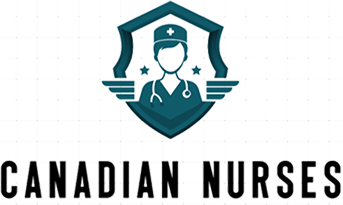Nursing interviews can be daunting due to the critical nature of the job and the requisite combination of technical skills, knowledge, and compassionate patient care expected from candidates.
If you’re preparing for a nursing interview, knowing the most common questions can help you articulate your qualifications and demonstrate your readiness for the role. Here’s a comprehensive look at typical nursing interview questions and the rationale behind them.
“Why did you decide to become a nurse?”
This question is almost always asked to understand your motivation and commitment to this demanding career. It allows you to share your personal journey and passion for nursing, which can be rooted in a personal experience or a general desire to help others and make a difference in their lives. Your response can also highlight your long-term commitment to the profession.
“How do you handle stress on the job?”
Nursing is a high-pressure profession that often requires handling life-or-death decisions under stress. Interviewers ask this question to assess your coping mechanisms and whether they align with the demands of the position. Discuss specific strategies you use, such as prioritization, delegation, or mindfulness, and how these help maintain your effectiveness and care standards under pressure.
“Can you describe a time when you had to deal with a difficult patient or family member?”
Conflict resolution skills are vital in nursing, where emotions and stakes are often high. This question tests your interpersonal skills and patience. Employers look for nurses who can demonstrate empathy, maintain professionalism, and effectively communicate, even in tense situations. Be sure to end your response on a positive note, explaining how the situation was resolved.
“What do you find most rewarding about being a nurse?”
This question helps interviewers gauge what aspects of the job resonate most with you and whether these align with the role they are offering. It’s an opportunity for you to discuss what drives your satisfaction at work, be it patient interaction, the chance to advocate for healthcare improvements, or teamwork.
“How do you stay current with medical advancements and changes in the nursing field?”
Continuing education is crucial in nursing due to constant advancements in medical procedures and technologies. Employers need to know that you are committed to lifelong learning and staying current. Mention any courses, seminars, certifications, professional journals, or conferences that help you keep up-to-date.
“Tell me about a time you made a mistake and how you handled it.”
This question assesses your accountability and ability to handle mistakes constructively. No one is perfect, and in a high-stakes environment like healthcare, errors can be learning opportunities. Describe a situation where you owned up to a mistake, corrected it, and took steps to ensure it wouldn’t happen again, highlighting your integrity and commitment to quality care.
“What are your career goals?”
Understanding your future in nursing helps interviewers determine if your aspirations align with the opportunities at their facility. Whether you aim to specialize further, move into leadership, or pursue advanced certifications, share how these goals contribute to your career path and how they might benefit your organization.
“How do you prioritize tasks during a busy shift?”
Time management is crucial in nursing. This question seeks insight into your ability to organize, prioritize, and execute tasks efficiently. Discuss how you assess urgency and impact, manage your duties against shifting priorities, and use any specific tools or methods to keep track of responsibilities.
“Can you give an example of how you’ve worked effectively under minimal supervision?”
Nurses often operate independently, and showing that you can handle responsibilities without constant oversight is key. Provide examples where you successfully managed patient care or a project autonomously, showcasing your reliability and decision-making skills.
“What makes you a good fit for this particular nursing position?”
This is your chance to tie your skills and experiences directly to what the job entails and what the employer values. Tailor your response to reflect the job description and highlight qualities that make you uniquely suited for the position and the institution’s culture.
Conclusion
Preparing answers to these common nursing interview questions can significantly improve your performance during the interview. It allows you to present a confident, thoughtful, and well-prepared image to potential employers, greatly enhancing your chances of landing the job. Remember, the key is to remain genuine and let your professional experiences and genuine passion for nursing shine through in your answers.

